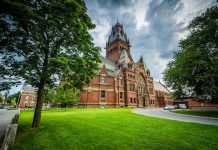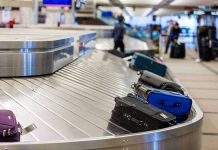
A British Army veteran faces legal consequences for silently praying outside an abortion clinic, igniting a fierce debate on freedom of expression in the UK.
At a Glance
- Adam Smith-Connor was convicted for silently praying outside an abortion clinic in Bournemouth, England.
- The conviction stems from a breach of a Public Spaces Protection Order (PSPO) prohibiting acts related to abortion services.
- Smith-Connor was sentenced to a conditional discharge and ordered to pay £9,000 in prosecution costs.
- The case has sparked controversy over freedom of thought and expression in the UK.
- New buffer zone laws set to be implemented in England and Wales starting October 31, 2024.
Veteran Convicted for Silent Prayer
In a landmark case that has raised concerns about personal liberties in the United Kingdom, British Army veteran Adam Smith-Connor was found guilty of silently praying outside an abortion clinic in Bournemouth. The court ruled that his silent prayer demonstrated “disapproval of abortion,” violating a Public Spaces Protection Order (PSPO) that prohibits acts of approval or disapproval related to abortion services within designated “safe zones.”
Smith-Connor was sentenced to a conditional discharge and ordered to pay prosecution costs of £9,000 (approximately $11,700). The verdict has ignited a firestorm of debate over the limits of freedom of expression and thought in public spaces.
An army veteran has been convicted after praying silently outside an abortion clinic for his own unborn son @ADF_UK @PoliceInspForum @BPAS1968 https://t.co/TLIt31LjXe
— Charles Hymas (@charleshymas) October 17, 2024
Reaction and Controversy
The conviction has drawn sharp criticism from various quarters, with many viewing it as an unprecedented infringement on personal freedoms. Smith-Connor himself expressed dismay at the ruling, stating, “I never imagined that in a free society, I could be criminalized for the thoughts in my own mind.”
“Today, the court has decided that certain thoughts — silent thoughts — can be illegal in the United Kingdom. That cannot be right.” – Smith-Connor
Legal experts and public figures have weighed in on the case, with many expressing concern over its implications for civil liberties. Jeremiah Igunnubole of ADF UK, a legal group considering an appeal against the decision, described the ruling as a significant abuse of human rights.
New Buffer Zone Laws
The controversy surrounding Smith-Connor’s case comes as the UK prepares to implement new buffer zone laws around abortion facilities in England and Wales. Starting October 31, 2024, these laws will prohibit certain activities within 150 meters of clinics, including silent prayer.
Supporters of the new laws argue that they are necessary to protect women’s access to abortion services and prevent harassment. However, critics contend that the legislation is overly broad and could criminalize peaceful acts or intentions, potentially infringing on religious freedom and freedom of expression.
Broader Implications
The case has sparked a wider debate about the balance between safeguarding public spaces and upholding individual rights. Some have likened the situation to an Orwellian dystopia, with former UK Parliament member Miriam Cates stating, “This isn’t ‘1984,’ but 2024 — nobody should be on trial for the mere thoughts they hold in their mind.”
As the UK grapples with these complex issues, the case serves as a stark reminder of the ongoing global discourse surrounding religious freedom and expression. The outcome of this case and the implementation of new buffer zone laws may have far-reaching consequences for personal liberties in the UK and potentially influence similar debates in other nations.
Sources:
- Silent Prayer at Abortion Clinics to Be Banned in Sweeping New UK Law | ZENIT – English
- British army veteran convicted of praying silently near abortion clinic
- UK, shock verdict: silent prayer against abortion is a crime
- Army Veteran Found Guilty for Bowing Head in Silent Prayer Over His Dead Son







